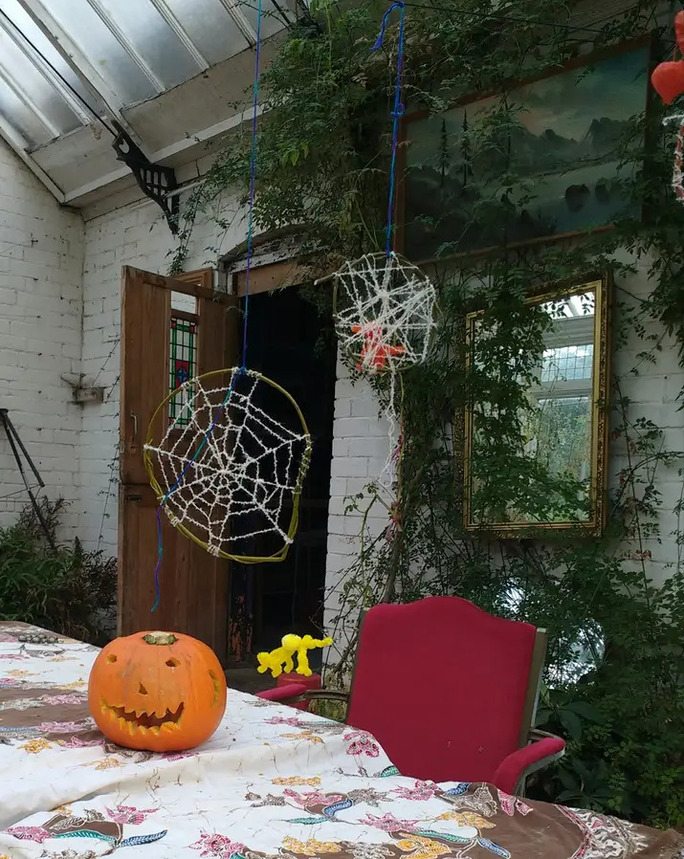
This page tells you more about how we live and work at Earthworm Housing Co-op, our aspirations, and about the village and local area we live in. It is designed to help you try and imagine what it would be like to live here.
- Land management
- Being an active part of the local community
- Sustainability and energy conservation
- Diet, communal meals and whole food orders
- Level of communality now and the future plan
- Visitors, friends and partners – yours, work weeks, courses and gatherings
- Our neighbours
- Children and parents
- Animals
- Equal opportunity
- Behaviour
- The local area
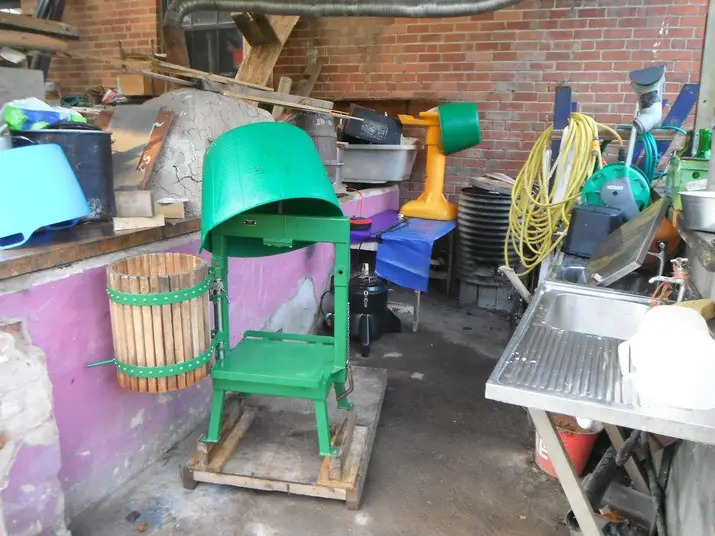 Land management
Land management
We have 7 acres of land which we actively manage. We have an agreed land management plan loosely based on organic methods and permaculture principles. As a co-op and individually, we own a wide range of tools for use in our woods and vegetable gardens. While we are not opposed to having livestock on our land (in recent years we have had chickens), no animals can be raised for or sold for slaughter.
The co-op has to manage its trees, wetland and boundaries. Members can choose to help manage the orchards, grass land and kitchen gardens too. We have a gardening group which decides how to manage these optional areas and members can contribute time or funds or neither and still benefit from this.
All members can use all these lovely outdoor spaces, whether you are actively involved in managing them or not. We all benefit from the scything and pruning habits of some members, but while the coop would fail without accounting, it will manage fine without any grass management or pruning. Those jobs don't count as part of the 4-hours a week work commitment. A housing co-op is an accommodation management company. This one also owns grass lands and woods as a beautiful bonus.
In the future we hope to make more productive use of the land, and members can put forward proposals for this to a co-op meeting. This could be either individually or as part of a separate group.
To get your head around how we are currently using our 7 acres, have a look at the our Land plan.
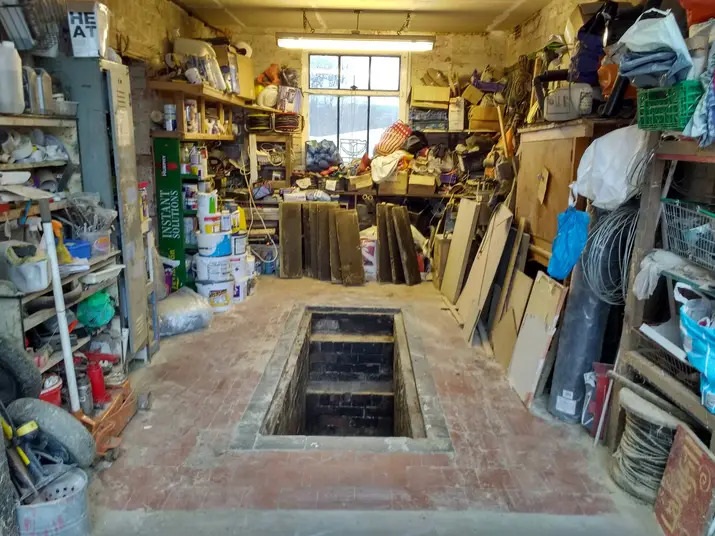 Being an active part of the local community
Being an active part of the local community
Wheatstone House has been a commune and then a housing co-op for nearly 50 years and has at times been an active part of the village. The longest-standing current members moved in in 2011, and since then many of our neighbours have let us know that they are pleased that our group is here, improving things in ways they can notice. We aspire to grow this support further. The annual village wassail ends in our orchard and we occasionally have open days and community events where local people can come and see what we do. In return they might buy things from us later, creating livelihoods for some members.
The village has a thriving little magazine called “Leintwardine Life” to which we occasionally contribute positive articles.
On a personal level we have been integrating into the community, sending some of our children to the local primary school, volunteering and working at the community centre, in the local fire station, and joining various clubs (history society, cider club) and taking part in village activities such as the parish council, the Flicks in the Sticks Cinema and fun days. We also regularly make use of the very lively community centre, shop and garage, the bakery, the chippy and the two pubs, the Sun and the Lion.To live at Earthworm you don’t have to join in any of this, but being part of ordinary village life is a more interesting proposition in Leintwardine than in many other villages!
Sustainability and energy conservation
In its secondary rules the co-op says that it is committed to using alternative and appropriate technology, conserving energy, minimising use of pollutants, exploring and experimenting with systems for self-reliance, energy conservation and low impact sanitation.
So far, we have compost toilets (as well as conventional flush toilets) and a wetland ecosystem treatment for waste water, road run off and the overflow from the sewage settling tank. We manage large scale composting, have a green electricity provider, some members use shared laundry facilities and we use local and ecologically considered building materials. We grow and harvest some of our own wood, buying extra in from as local a source as possible. We are insulating the buildings, draught-proofing the windows and have installed a wood fired district heating system. In the longer term we hope to extend our use of solar power and passive solar gain.
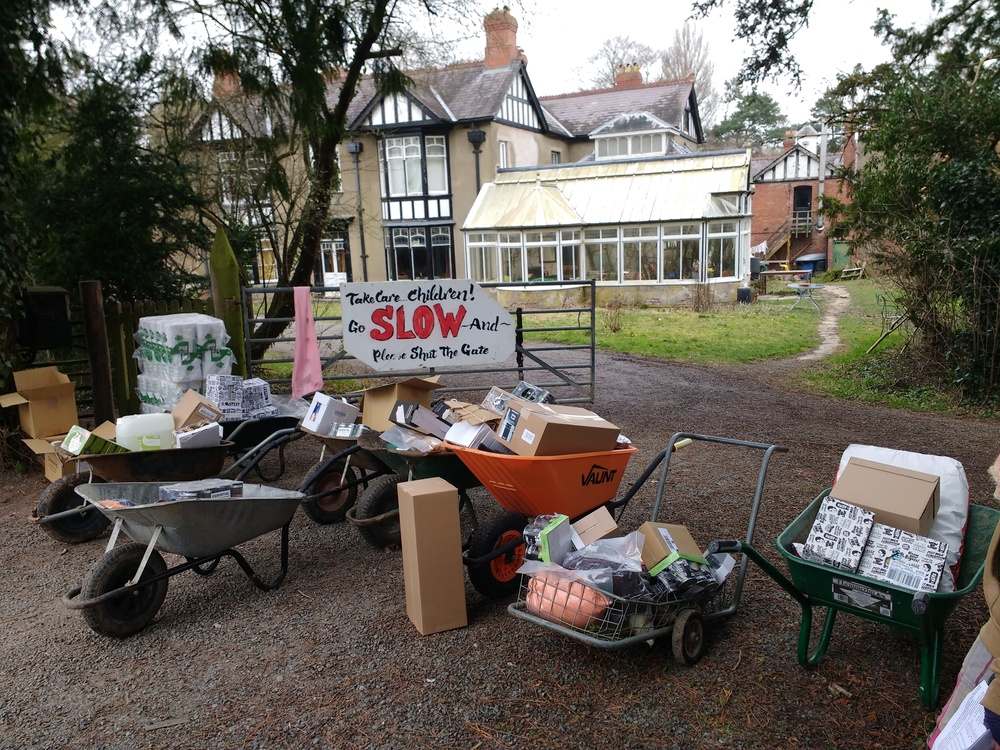 Diet, communal meals and whole food orders
Diet, communal meals and whole food orders
You can eat what you want, when you want and how you want. All we ask is that you respect other members' rights to do the same. Sharing food is fun though, and a good way to create and facilitate co-operation.
Currently we have big wide co-op meals occasionally with all the residents bringing food to share. We also we have work weekend lunches, celebrate people's birthdays and some of us mark seasonal celebrations such as Beltane, Imbolc, solstices etc… At shared meals we make sure there is something to cater to all our different tastes, this includes a meat, vegetarian and vegan option depending on who is around. There is no expectation for members to take part in communal meals but if you want to there will always be something you like to eat.
The Shared House group of members take turns to cook and eat dinner together. They share a kitchen and buy food collectively, which includes meat, fish, dairy & eggs for those who want to eat them. And everyone is willing to cook and eat vegan food, as this is the Shared House default for shared meals.
Earthworm has an account with Essential Wholefood Co-op, through which we make regular bulk orders of food such as rice, lentils, nuts and luxury foods. We also bulk-buy ecologically sensitive cleaning products which we have to use to maintain the health of our wetland waste-water treatment system.
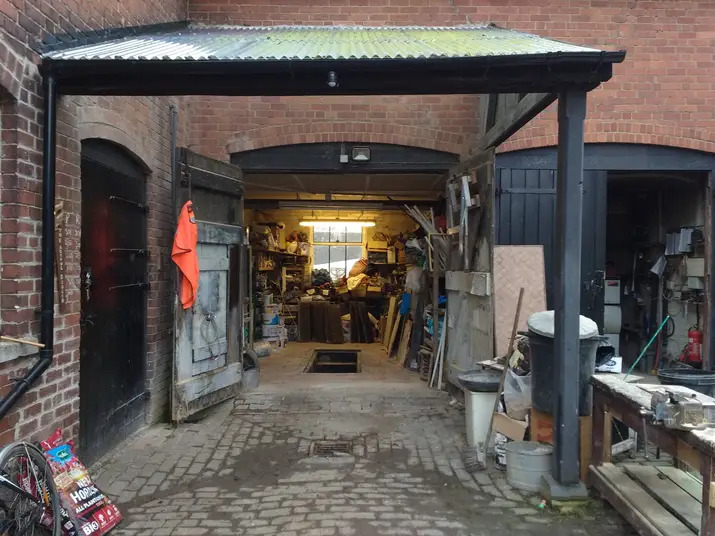 Level of communality
Level of communality
Many people expect a Housing Co-op to be like living in a ‘commune’. We aren’t aiming to create this type of living environment. We want people to be able to live next door to each other and work harmoniously together, running the housing co-op and work days. But we don’t prescribe doing each other’s laundry or sharing child care. What we do expect is for you to respect others’ rights to live how they want. If you want to share more time, work, food or fun with your fellow co-op members and they are up for it, then great and if not also great. Just like friendships, neighbourhoods and communities, the co-op needs to grow naturally; not through a system of written rules and metered processes.
Some aspects of living here such as the shared heating and sewage systems necessitate a greater level of co-operation than in a ‘normal’ privately owned terrace house, but beyond the physical realities of living here the rest is up to us as individuals, not the co-op.
Within the shared house accommodation (4 bedrooms; 3 toilets and a kitchen), arrangements regarding cooking, washing up and all the other usual details of house discussions are a matter for those who share the house, not a matter for the wider co-op. At the moment within the shared house, utility bills are shared equally and food-purchasing, evening meals and housework are all shared. People do their own thing for breakfasts, lunches and making a living.
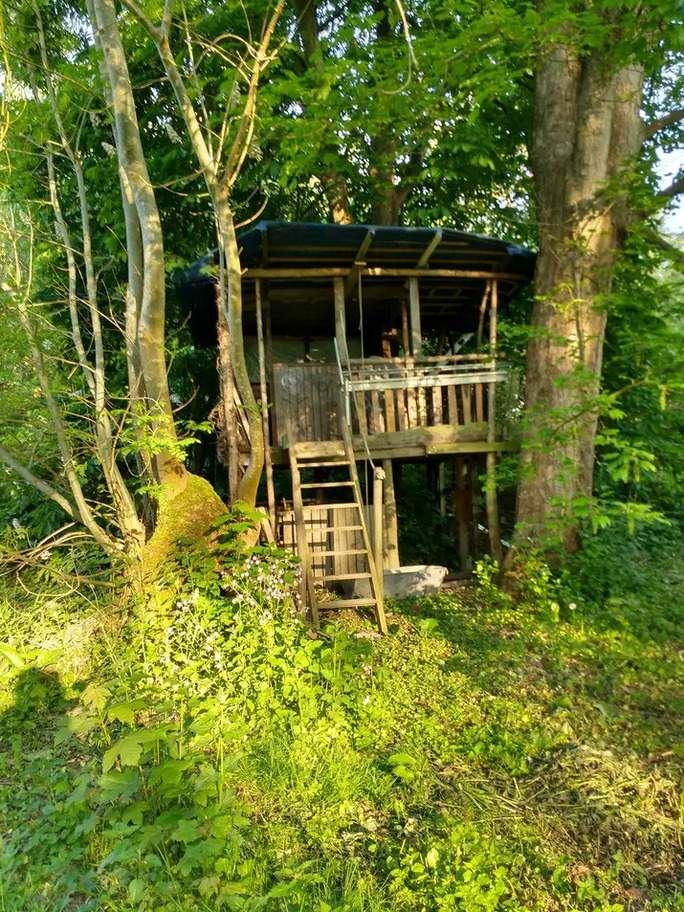 Visitors, friends and partners – yours, volunteers, courses and gatherings
Visitors, friends and partners – yours, volunteers, courses and gatherings
Personal Visitors: Living in this co-op brings many benefits in terms of sharing resources and having people nearby to cultivate a culture of cooperation with. The flip side of this, is that you do not have as much freedom or control over some spaces in your life as you would if you owned your own home or rented a home where you didn't share anything with anyone else.
Because we do share some of our space (for example parking, gardening, the laundry and other indoor and outdoor spaces) having visitors to come and stay is a matter of more careful planning than in private homes. Of course, you have your own private room or rooms in which you can accommodate all manner of parties and visitors, but we all take everyone's needs into account and tell each other roughly what's going on. You can also make use of the (limited) shared guest spaces in co-ordination with others. Obviously, it's OK for partners to come and visit often, but if people are spending most of their lives here then they will probably have to apply for membership!
Volunteers: We have many helpful and skilled friends who want to help the co-op achieve its renovation and land management dreams. Members share the creation of our co-op maintenance programmes and recruitment of helpers, season by season. We provide accommodation, fun and food for our helpful visitors.
Paying Visitors: We occasionally use parts of the house and grounds for hosting events. Paying visitors use these spaces for learning, training, discussions, inspiration and gatherings. The use of the shared spaces (for business use) is negotiated between the co-op and the business, making sure there is a fair balance. This doesn’t happen often in the renovation phase, but in future it may become a more important topic of negotiation.
We can hold large camps here for up to 28 days per year (including set up and taking down). This could mean up to 100 people right outside your home for several days. Co-op members share the decisions about when these large events take place, and how often.
Earthworm isn’t a quiet rural retreat. We are beside a busy road and part of the village of Leintwardine. We hope that there will be more people visiting and making use of the land in the coming years. If you don’t like meeting new and interesting people then this place probably isn’t for you. As one member put it, "When there's an event going on, it's like living right next door to a busy village hall!"
Partners and Significant others: You can have your significant other/s to visit as often as you want, but as mentioned above, if they are spending more time here than not, they will probably be asked to apply for membership (assuming that there is space for them). That membership is assessed on an individual basis and a new person will have to go through the same membership procedure as the rest of us.
Our neighbours
We have a farmers’ field on one side of our property, and a field owned by the local school and used as an outdoor classroom on another. Over the road on the longest side is a housing estate and there is a busy main road on the fourth side. Other homes are within earshot in every direction, so Earthworm is not a place for long loud parties or frequent stinky bonfires! We do sometimes have a marquee in the garden with a sound system, but this is made harmonious by having a clear cut-off time for the music, and a clear limit on the decibels. We tell our neighbours what's going on well in advance of large events.
Children and parents
We want a balance of members old and young. There is some play equipment, communal toys, a tree house, a trampoline and a variety of outdoor spaces to excite the imagination of any child. There is a primary school and nursery 5 minutes walk away and a secondary school 5 miles away.
The decision to have children is a personal matter. However the co-op can’t tolerate overcrowded accommodation. Though there is room for some flexibility in how our accommodation is arranged, this would require the agreement of the whole co-op. We must accommodate enough adults to pay for running and improvement costs and to do the essential maintenance and running of the co-op in the allocated work days. See the Work Commitment page for more details.
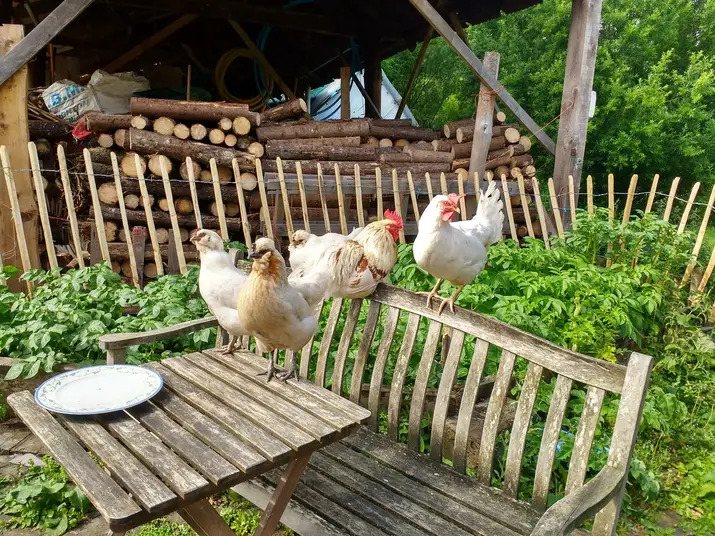 Animals
Animals
Every domestic animal on site must have an owner, who is responsible for their animal's wellbeing and behaviour. We have some animals already (dogs and sometimes chickens), and there is a maximum number of pets and hobby livestock we can support. This figure will change, being dependant on who lives here already (animals and humans) and how the land is being used. We are happy to consider applications from people with pets/hobby livestock and each case will be considered separately - however if you are applying for a room in the shared house there are no cats, dogs or furry pets indoors (due to allergies).
The way we are currently managing the land means we cannot accommodate a serious (ie, beyond hobby) population of livestock, and our clay soil and damp ground is not really suitable for hoofed animals. We are not up for hosting a business that raises animals for slaughter, either as the main product or a by-product.
There are currently some animal-free shared spaces (the shared house kitchen, co-op office and some bedrooms) to accommodate allergies, and some spaces where animals can come so people have their furry companions with them. If you decide you want to get animals after you become a member this can only be done if the rest of the coop agrees.
Equal opportunity for all
We will consider applications from all people whatever age, gender, race, sexuality, disability, health needs, financial situation, complicated living situation etc. If we need to make adaptations to our house in order to accommodate you, we will try to do this bearing in mind what we can afford. We try to keep rent levels as affordable as possible, but be aware that we can't guarantee to keep them within housing benefit/Universal Credit levels; and there are bills on top of the rent. See the Accommodation and Costs section for more details).
Behaviour
We have a behavioural policy, enshrined in our secondary rules;
‘all members and visitors have the right to be treated with respect. Intimidation, abusive, aggressive, violent behaviour is completely unacceptable and will not be tolerated’.
We hope that there is never a time when we have to deal with unacceptable behaviour. However we have a system in place if we need to and if serious enough this could result in a co-op member having to leave. In practice we hope to deal with problems as they arise in a supportive and sensible way that has a positive outcome for everyone involved.
The local area - public transport, libraries, museums and swimming pools
Public Transport: Leintwardine has a few buses (the 740) to and from Ludlow/Knighton every day except Sunday. There is also a bus to Hereford on school days and otherwise every Wednesday. Our nearest railway station is Hopton Heath which is a pleasant 3-mile walk or cycle away. Hopton Heath is a ‘request stop’ on the ‘Heart of Wales Line’, with eight trains (from/to Shrewsbury/Swansea) every day. Craven Arms and Ludlow are both busier railway stations, just under 9 miles away. The cycle to or from Ludlow is much more taxing than the cycle to or from Craven Arms.
Libraries: There are libraries all over the place, including a small one right here in Leintwardine, which is part of the Herefordshire Libraries and open at least twice a week. Bigger ones are found in Craven Arms, Leominster, Ludlow and Knighton, and these towns also have little galleries and museums.
Places of Interest: Ludlow has an impressive castle, which you can walk around outside for free (like Ludlow’s excellent April-October Museum) but going inside costs about a tenner. Ludlow is full of small designer shops and specialist food-retailers, and has a different sort of trading in its spacious market place at least four days a week and more in summer.
Swimming Pools: There are swimming pools in Knighton, Leominster and Ludlow, open every day with a good timetable including kids fun hours, swimming lessons, keep fit and same-sex sessions.
Leintwardine: Our village has a well-used and recently refurbished community hall, as well as two churches that all sometimes host concerts, recitals, classes, choirs or performances. Pretty much everything you’d expect from a village hall happens here sometimes, with titles as specific as “Men on Mats – Pilates for men”, and “Irish Country Dancing” as well as all the toddler groups, yoga, art classes and flower arranging.